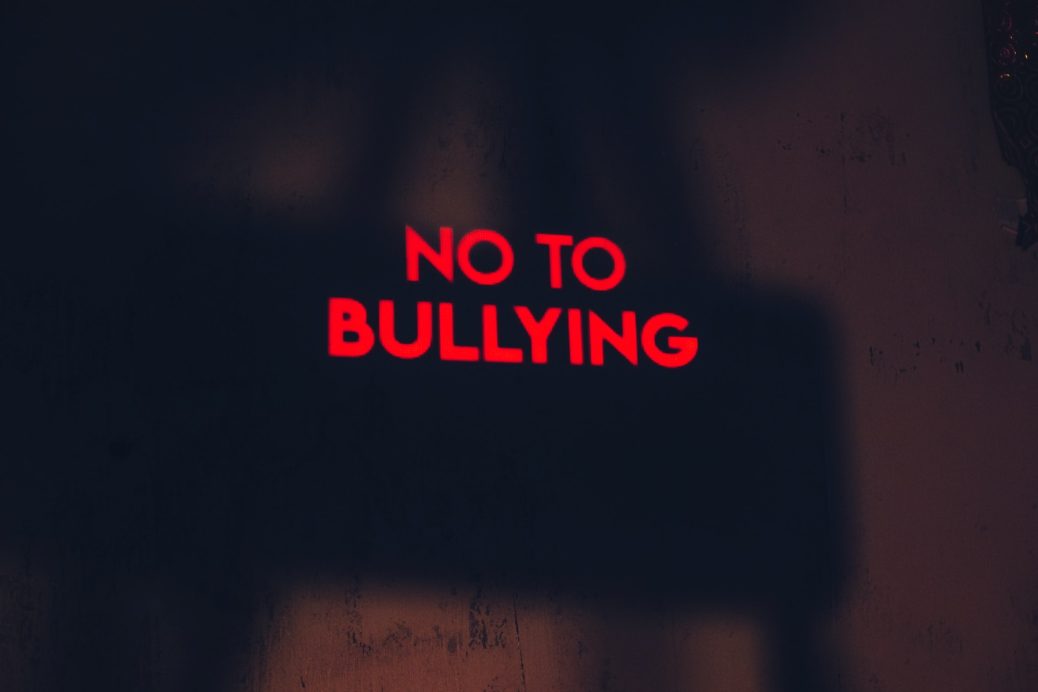Discover the profound and lasting effects of bullying on children in “The Lingering Wounds: Exploring the Lasting Effects of Bullying on Children.” Explore the emotional, psychological, and social consequences that can persist long after the bullying stops.
Gain insight into the impact on academic performance, mental health, social development, and more. Understand the urgency of addressing bullying and providing support to help children heal from its lasting wounds. “The Lingering Wounds: Exploring the Lasting Effects of Bullying on Children.” Explore the emotional, psychological, and social consequences that can persist long after the bullying stops. Gain insight into the impact on academic performance, mental health, social development, and more. Understand the urgency of addressing bullying and providing support to help children heal from its lasting wounds.
Introduction
Bullying is a pervasive issue that affects countless children worldwide, leaving deep and lasting scars on their emotional, psychological, and social well-being. In this article, we delve into the profound and often long-term effects of bullying on children, shedding light on the extensive damage it can inflict on young minds.
Emotional Impact
Bullying takes a toll on children’s emotional well-being, leading to a range of negative emotions that can persist long after the bullying stops. Victims often experience heightened levels of fear, anxiety, and depression, feeling constant stress and vulnerability. The constant harassment and humiliation can erode their self-esteem and self-worth. Also creating a sense of worthlessness and self-doubt that may persist into adulthood. The emotional scars from bullying can manifest as trust issues, social withdrawal, and difficulties in forming meaningful relationships.
Psychological Consequences
Bullying has profound psychological consequences on children, shaping their cognitive and behavioral patterns. Many victims develop symptoms of post-traumatic stress disorder (PTSD), experiencing flashbacks, nightmares, and intrusive thoughts related to the traumatic experiences they endured.
Persistent fear and hypervigilance can impact their ability to concentrate, leading to academic difficulties and a decline in overall performance. Victims may develop a negative worldview, adopt a pessimistic outlook, and struggle with a lack of resilience and coping mechanisms.
Social Isolation
One of the most devastating effects of bullying is the profound sense of isolation it creates for victims. The constant harassment and exclusion from social circles can lead to social withdrawal and difficulties in forming connections with peers. Victims may develop a deep mistrust of others, leading to a reluctance to engage in social activities. The isolation can further exacerbate feelings of loneliness, sadness, and a pervasive sense of being an outcast. Overcoming Substance Abuse: Tips for Parents and Teenagers on How to Recognize Prevent and Treat Teenage Drug Addiction
Long-term Impact
The impact of bullying extends far beyond childhood, leaving lasting effects that can persist into adulthood. Adults who were bullied as children may struggle with low self-esteem, self-doubt, and difficulties in establishing healthy relationships. The trauma experienced during childhood can contribute to the development of mental health disorders such as anxiety, depression, and even suicidal thoughts. The long-term consequences can also manifest in physical health issues, including increased vulnerability to chronic illnesses, compromised immune systems, and a higher risk of substance abuse.
Intervention and Support
Recognizing the devastating effects of bullying, it is crucial to implement effective intervention strategies and provide comprehensive support systems for victims. Schools, parents, and communities must work together to create safe environments where bullying is not tolerated, and proactive measures are taken to address incidents promptly. Counseling and mental health services should be readily available to victims, offering a safe space to process their emotions, build resilience, and develop coping mechanisms. Education programs that promote empathy, kindness, and acceptance can help prevent bullying and foster inclusive environments.
Academic Consequences
Bullying can significantly impact a child’s academic performance. The constant fear, anxiety, and distress experienced due to bullying can hinder their ability to concentrate, leading to difficulties in learning and retaining information. As a result, victims may experience a decline in grades, decreased motivation, and an overall disinterest in school. The academic consequences of bullying can have long-term effects on a child’s educational trajectory and future opportunities.
Physical Health Effects
Bullying doesn’t just take a toll on a child’s mental and emotional well-being; it can also have physical health implications. The chronic stress experienced due to bullying can weaken the immune system, making victims more susceptible to illnesses and infections. Physical symptoms such as headaches, stomachaches, and sleep disturbances are common among children who are bullied. The physical health effects of bullying can further exacerbate the overall impact on a child’s well-being.
Self-harm and Suicidal Ideation
In extreme cases, the relentless bullying that a child faces can lead to self-harm and suicidal ideation. Continuous emotional distress, feelings of isolation, and a lack of perceived support can push victims to a breaking point. They may resort to self-harming behaviours as a way to cope with the pain or contemplate suicide as a means of escape. It is crucial to recognize the signs of distress in children who are being bullied and provide immediate intervention and support.
Disrupted Social Development
Bullying disrupts the normal social development of children. Instead of forming healthy relationships and learning crucial social skills, victims of bullying may experience social setbacks. They may struggle with trusting others, making friends, and engaging in positive social interactions. Disrupted social development can impact a child’s ability to navigate social situations, establish healthy boundaries, and cultivate a sense of belonging in their peer group.
Long-lasting Trauma
The trauma experienced due to bullying can have long-lasting effects on a child’s psychological well-being. Even after the bullying stops, victims may carry emotional scars and trauma with them for years. The traumatic experiences can lead to heightened anxiety, hyper-vigilance, and a constant fear of being targeted again. The lingering trauma can affect their overall quality of life, contributing to ongoing mental health struggles and difficulties in forming trusting relationships.
Impaired Mental Health
Bullying significantly increases the risk of developing mental health disorders in children. The persistent stress, fear, and humiliation experienced due to bullying can contribute to the development of conditions such as anxiety and depression. These mental health challenges can have a profound impact on a child’s overall well-being, affecting their daily functioning, relationships, and overall quality of life. It is crucial to prioritize mental health support and intervention for children who have been bullied to prevent long-term psychological consequences.
Decreased Academic Engagement
Bullying can have a detrimental effect on a child’s academic engagement and motivation. The constant fear of being targeted and the emotional distress caused by bullying can lead to decreased interest in school activities, disengagement in the classroom, and a decline in academic performance. Victims may exhibit increased absenteeism, have difficulty focusing on their studies, and may even drop out of school altogether. Addressing the effects of bullying on academic engagement is crucial to ensure that children have access to a supportive learning environment that fosters their educational growth.
Substance Abuse
The trauma and emotional pain inflicted by bullying can increase the risk of engaging in risky behaviours, including substance abuse, as a coping mechanism. Some victims may turn to drugs or alcohol as a way to numb the pain or escape from the overwhelming emotions associated with being bullied. Substance abuse can further exacerbate the negative effects of bullying. It can lead to a destructive cycle of addiction, worsening mental health, and impaired social functioning.
Conclusion
Bullying has a profound and lasting impact on children, affecting their emotional well-being, mental health, academic engagement, and social development. The effects of bullying can be far-reaching, extending into adulthood and impacting various aspects of a person’s life. It is crucial for parents, educators, and society as a whole to actively address and prevent bullying, create safe and inclusive environments for children, and provide comprehensive support systems to help victims heal and thrive.
“The Lingering Wounds: Exploring the Lasting Effects of Bullying on Children” sheds light on the deep and enduring consequences of bullying that children carry with them long after the acts of torment have ceased. From emotional scars to psychological trauma, bullying leaves lasting wounds that can shape a child’s well-being, relationships, and future.
The article has highlighted the emotional impact of bullying, including heightened fear, anxiety, and depression, as well as the psychological consequences such as post-traumatic stress disorder (PTSD) and negative cognitive patterns.
Moreover, the article has delved into the long-term implications of bullying, ranging from academic setbacks to physical health effects and increased vulnerability to mental health disorders.
However, the article also emphasizes the importance of intervention and support. By recognizing the effects of bullying, implementing comprehensive anti-bullying strategies, and providing mental health resources, we can help alleviate the lingering wounds inflicted on children. Through fostering empathy, promoting inclusion, and creating safe environments, we can mitigate the long-term impact of bullying and help children heal and thrive.
“The Lingering Wounds: Exploring the Lasting Effects of Bullying on Children” serves as a call to action for individuals, communities, and institutions to prioritize the well-being of children, advocate for change, and create a world where every child can grow, learn, and flourish without enduring the lasting scars of bullying.
Outbound Sources
- National Bullying Prevention Center:
- Website: https://www.pacer.org/bullying/
- This organization focuses on bullying prevention and provides resources, research, and articles related to the topic.
- StopBullying.gov:
- Website: https://www.stopbullying.gov/
- This U.S. government website offers information and resources on preventing and addressing bullying, including articles on its effects on children.
- American Academy of Child & Adolescent Psychiatry (AACAP):
- Website: https://www.aacap.org/
- The AACAP provides information on various mental health topics, including bullying and its impact on children. Their website may have articles or resources on this subject.
- Child Mind Institute:
- Website: https://childmind.org/
- The Child Mind Institute is a nonprofit organization focused on child mental health. They provide articles and resources on various topics, including bullying and its effects on children.
- Psychology Today:
- Website: https://www.psychologytoday.com/
- Psychology Today features articles written by experts in the field of psychology, and they often cover topics related to bullying and its impact on children’s mental health.


